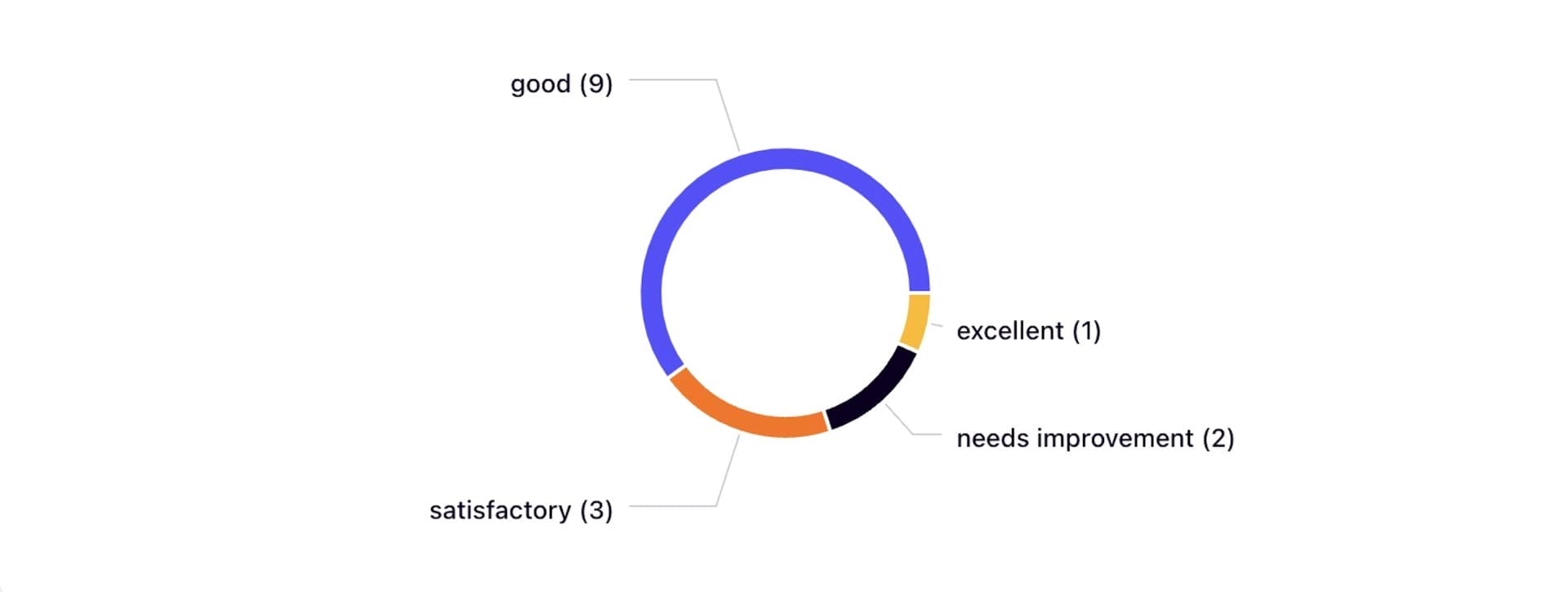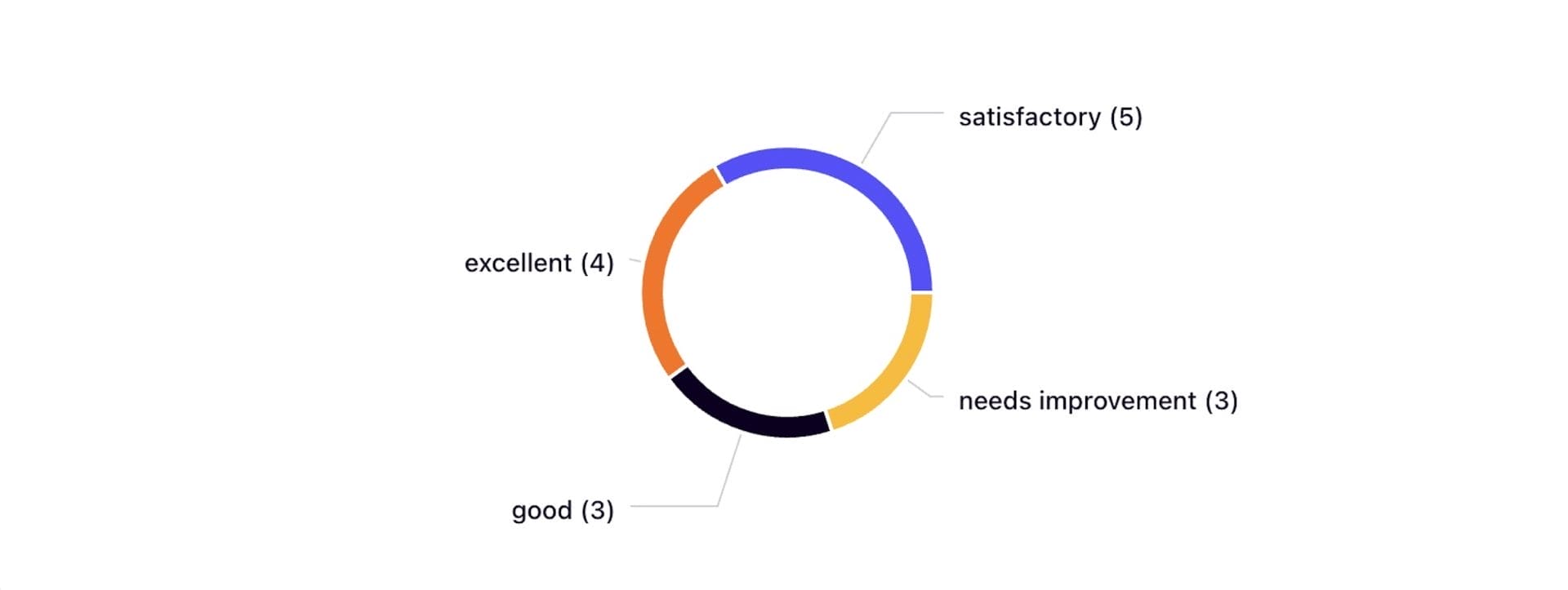
This project is, in many ways, a true manifestation of our friendship. It reflects our shared love for good, interesting food and serves as a unique blend of our personal passions and professional pursuits. TerraTable stands at the intersection of gastronomy, environmental sciences, and the art of breaking down and visualizing complex topics for knowledge transfer. Together, we aim to make the intricate relationship between food, culture, and the environment more accessible and tangible.
Who We Are
Irmak: A gastronome and chef deeply committed to exploring the connections between food, tradition, and sustainability. (More about my journey can be found here.)
Amanda: An environmental engineer with a flair for creativity, always eager to bring insights from her former profession as a typesetter into this project.
The Aim
At its core, the aim of this project is simple yet powerful: to merge environmental sciences with culinary arts in a way that fosters deeper understanding, creativity, and sustainability.
The Story
Food is often the first impression you leave—it’s a reflection of who you are and what you value. Despite this, a significant gap exists between the theoretical knowledge gained in environmental sciences and the practical applications found in gastronomy. In essence, what you study often has little to do with what you eat. For these insights to truly impact daily life, one must consciously integrate them into everyday habits.
This realization inspired us to take action. Recognizing this gap, we decided to build a bridge between these two fields—making environmental knowledge not just digestible but deliciously so. And thus, TerraTable was born.
TerraTable was privileged to collaborate with Schweizer Jugend forscht during their inspiring initiative, the International Wildlife Research Week (IWRW). This week-long program, organized by Swiss Youth in Science, provides young people with the opportunity to immerse themselves in the natural wonders of the Val Müstair in Graubünden. It is more than a learning experience—it’s a hands-on introduction to the world of alpine wildlife and field biology.
Participants in the program are guided through the essential steps of scientific research: formulating questions, collecting field data in alpine environments, performing statistical analysis, and presenting their findings both in written reports and during public events. This journey is supported by a team of four experienced biologists specializing in alpine flora and fauna, ensuring participants gain valuable insight into the delicate ecosystems of the region. (For more details, visit Schweizer Jugend forscht’s website.)
For two consecutive years, in 2022 and 2023, TerraTable proudly collaborated with Schweizer Jugend forscht during the International Wildlife Research Week. Over the course of each eight-day program, we provided breakfast, lunch, dinner, and packed field extras for the participants—23 young people and 3 guides. Our meals were carefully designed to align with the research week’s overarching themes, creating an integrated learning experience that extended beyond the fieldwork.
Each day’s menu revolved around consistent core topics: locality, food waste, soil health, seasonality, water waste, carbon footprint, and foraging. These themes reflected key environmental concepts and were woven into the catering to ensure that participants could connect their research directly to their meals.
Beyond just meal preparation, we developed educational content for each of these themes and led conversations with participants to delve deeper into their significance. These discussions provided valuable context, turning the dining experience into an opportunity for meaningful dialogue and learning. For example:
Locality: We discussed the importance of sourcing ingredients from the surrounding region to support local ecosystems and economies. Meals featured local produce, reinforcing the idea that local choices can reduce transportation emissions and preserve regional biodiversity.
Food Waste: Together with participants, we explored strategies for minimizing waste, such as proper portioning, repurposing leftovers, and composting. The preparation process itself demonstrated how small, intentional changes can make a big impact.
Soil Health: We led conversations about the connection between soil quality and the nutrient density of food. Participants learned how regenerative agricultural practices not only improve soil health but also enhance the flavors of seasonal produce.
Seasonality: Meals showcased the best of what the season had to offer, sparking discussions on the benefits of working with nature’s cycles rather than against them.
Water Waste: We highlighted how water usage varies across different types of food and shared practical tips for reducing water consumption in food preparation. Participants were encouraged to think critically about the hidden water costs in their daily diets.
Carbon Footprint: By curating low-carbon meals that emphasized plant-based ingredients and reduced reliance on imported goods, we illustrated how food choices can directly affect climate change.
Foraging: Certain dishes featured wild ingredients sourced from the alpine environment, leading to hands-on conversations about sustainable foraging, biodiversity, and respecting natural habitats.
By integrating these topics into every meal and fostering discussions, we provided participants with a practical and sensory connection to the environmental themes they were studying. These meals became an extension of their research, reinforcing key messages in a tangible, engaging way.
Creating an Interactive Learning Environment
By combining thoughtfully prepared meals with educational content and open discussions, TerraTable offered participants a unique perspective on the intersection of food, sustainability, and alpine ecosystems. The feedback from participants highlighted how these conversations helped them connect the dots between theory and practice, leaving a lasting impression on how they viewed their role in addressing environmental challenges.
This collaboration demonstrated the power of food as an educational tool, transforming every bite into an opportunity to inspire curiosity, reflection, and action.
Additional Information
Here are the links to some of our shared content with the participants of the week:
At the end of the week, students were asked to complete a questionnaire covering various aspects of the camp experience. This feedback provided valuable insights into different areas of the program. For the purpose of this analysis, we have specifically filtered and focused on the responses related to the ‘Food’ category.
Below, we present the feedback from IWRW 2022 and 2023, along with an interpretation of what these responses indicate about the participants’ experiences.
2022 Feedback Summary:
- Satisfactory: 5 participants
- Excellent: 4 participants
- Good: 3 participants
- Needs Improvement: 3 participants
General Feedback on Food
The feedback on the food was mixed, with participants using descriptors such as “good,” “excellent,” “satisfactory,” and “needs improvement.” While some participants were highly satisfied, others pointed out areas where the food experience could be enhanced:
- One participant described the food as “excellent,” reflecting high satisfaction.
- Others said it was “good,” indicating a generally positive experience without being overly enthusiastic.
- A noticeable group rated the food as “satisfactory,” suggesting it met basic expectations but left room for improvement.
- One participant noted that the food “needs improvement,” specifically mentioning lunch as an area of concern.

Detailed Observations
- A participant mentioned that “the food was generally good, but for lunch, more variety or improvements could have been made.” This suggests a need to reconsider the lunch menu to better meet expectations.
- Another participant described the food positively, indicating satisfaction without elaborating on specific aspects.
Suggestions and Broader Comments
- While some participants didn’t directly mention food in their improvement suggestions, logistical and organizational feedback provides indirect insight into related areas:
- One participant suggested having “a little bit more time to exchange with other participants,” which might include shared meals as an opportunity for interaction.
- Another remarked on the need for better communication or promotion, which could also extend to clearer meal planning or food-related expectations.
- A few comments highlighted organizational aspects, like clearer advertisement, which could enhance the overall experience, including the food service.
Conclusion
Overall, the food was generally appreciated, with most feedback falling into the “good” or “satisfactory” categories. However, some participants felt specific improvements could make the meals more enjoyable, especially for lunches. Adding more variety, aligning meals with the event’s nature, or incorporating participant preferences could elevate the experience for future iterations.
2023 Feedback Summary:
- Good: 9 participants (largest group)
- Satisfactory: 3 participants
- Needs Improvement: 2 participants
- Excellent: 1 participant
General Feedback on Food
The feedback about the food was diverse, with students describing it using terms such as “good,” “satisfactory,” and “needs improvement.” Here’s a breakdown:
- “Good” was the most frequent response, indicating that many participants were content with the meals.
- “Satisfactory” was also commonly mentioned, suggesting that the food met basic expectations but could be improved in certain areas.
- One participant labeled the food as “needs improvement,” indicating dissatisfaction with specific aspects.

Examples of Feedback
- One participant commented, “I’ve never tried vegetarian food, and I don’t usually like it, but it was a new and interesting experience.” This reflects openness to trying new cuisines but also hints at the importance of accommodating diverse preferences.
- Another participant appreciated the food but noted that “it was a bit hard at the beginning to understand how the meal schedule worked.” This points to a need for clearer communication regarding meal arrangements.
Suggestions and Broader Comments
While many participants didn’t explicitly critique the food in their improvement suggestions, their broader feedback indirectly relates to the overall experience:
- One student suggested “organizing time better to write the report,” which might also reflect the need for better time management, possibly including meal breaks.
- Another mentioned, “Maybe trying to have some free time to stay alone or explore,” which could be linked to providing more relaxed meal settings or free time around meals.
- Some commented on logistical issues, like “Just the internet,” without directly referencing food, but it highlights the interconnectedness of their overall experience.
Conclusion
The food was generally well-received, with “good” and “satisfactory” being the most common descriptors. However, there is room for improvement in accommodating dietary preferences, ensuring meal schedules are clear, and possibly providing more variety or flexibility. Better integration of meals into the broader schedule might also enhance the overall experience for future participants.
Key Observations and Improvements from the years 2022 to 2023:
1. Increased “Good” Ratings:
- In 2022, only 3 participants rated the food as “good,” while in 2023, this category surged to 9 participants.
- This indicates a significant improvement in the general satisfaction level, as more participants moved into the “good” rating category.
2. Decrease in “Needs Improvement”:
- The number of participants rating the food as “needs improvement” dropped from 3 in 2022 to 2 in 2023.
- This suggests that some of the critical feedback from 2022 was addressed, resulting in fewer participants expressing dissatisfaction.
3. Fewer “Excellent” Ratings:
- The number of “excellent” ratings decreased from 4 in 2022 to 1 in 2023.
- This could mean that while more participants found the food acceptable or good, fewer were exceptionally impressed with it.
4. “Satisfactory” Ratings Halved:
- The “satisfactory” ratings decreased from 5 in 2022 to 3 in 2023.
- This suggests that participants were more likely to rate the food as “good” rather than “satisfactory,” highlighting an overall positive shift in perception.
Conclusion:
The 2023 feedback shows an improvement in general satisfaction with the food. The increase in “good” ratings and the decrease in “needs improvement” ratings indicate that efforts were made to address previous concerns. However, the drop in “excellent” ratings suggests that while general satisfaction improved, there may be opportunities to make the food stand out more and reach a higher level of excellence in future iterations.
The Baudirektion of Canton Zurich is responsible for planning, constructing, managing, and maintaining the canton’s infrastructure and environmental resources. Its tasks include road construction and maintenance, flood protection, forest management, agricultural promotion, the construction and administration of cantonal buildings, energy supply, environmental protection, and the preservation of historical monuments. The goal is to create and sustain an attractive, sustainable living environment for the population.
We were invited by die Cuisine to present a 30-minute session on planetary health diets to the Baudirektion Zurich. During this session, we provided an overview of how dietary choices impact planetary health and shared actionable insights. For further details, the planetary health diets presentation is available for download here.
As we gathered information to prepare a handbook on planetary health diets, complete with explanatory texts and simple recipe examples, we discovered several projects from other institutions that align with or complement our efforts. These initiatives also focus on sustainable food practices and knowledge transfer. Some examples include:
- ZHAW Klimatopf Initiative
The Klimatopf project by ZHAW introduces practical steps toward a sustainable kitchen, showcasing solutions for reducing food-related environmental impacts. Learn more: Klimatopf Initiative. - WWF Future Foods
The Future Foods initiative by WWF focuses on creating a sustainable food future by exploring innovative approaches to food production and consumption. More details can be found here: WWF Future Foods. - Sustainable Eating Workshop (August 2023)
Organized by ZHdK, ZHAW, and ZFV-Unternehmungen cooperative, this workshop explored what it takes to translate knowledge about sustainable eating habits into actionable practices. It highlights the collaborative efforts of academic and industry players in promoting sustainability in food systems. - Umwelt Arena Exhibition (2023)
This exhibition is designed to raise awareness about environmental impact and nutritional issues. It provides visitors with insights into how their food choices affect both health and the planet. - WWF Cooking Course (Sweden)
This course follows a similar approach to ours by combining theoretical input on sustainable eating with hands-on activities. Participants learn about climate-friendly recipes and then prepare them under guided supervision. Learn more here: WWF Cooking Course.
Through reflection, we recognized that our previous engagements often remained at a surface level, missing opportunities to challenge deeper assumptions and spark transformative conversations. As the landscape of environmental awareness evolves, we have observed a growing number of initiatives bridging gastronomy and environmental issues, which inspired us to explore the intricate relationship between soil health and gastronomy.
In 2022 and 2023, we provided educational content on topics such as soil health, food waste, and locality. While these efforts raised some awareness, their impact fell short of our expectations. We realized the need to refine our approach to better resonate with diverse audiences. Those in urban eco-conscious circles can be particularly vulnerable to greenwashing, while traditional farming and production communities often resist environmental messaging. This divide underscored the importance of bridging perspectives, fostering honest dialogue, and challenging assumptions across the spectrum.
Moving forward, we aim to craft new, research-based texts grounded in current scientific findings and framed around contemporary buzzwords shaping today’s environmental discourse. By testing these terms and concepts, we hope to engage audiences more critically and meaningfully, encouraging them to examine contradictions within prevailing narratives. Our ultimate goal is to cultivate a more nuanced and impactful approach to sustainability—one that transcends bubbles, connects diverse perspectives, and fosters honest, grounded dialogue.
Methodology: A Science-Driven Approach
Our first step in this renewed effort was to investigate the dynamic interplay between soil health and gastronomy, focusing on how these two interconnected elements influence one another.
To address these questions, we mapped relevant keywords for each topic and conducted a thorough review of the most recent scientific research (2020 and onward). We focused on studies published in journals ranked Q1 to Q3 according to the SCImago Journal Rank, ensuring a high standard of quality and relevance.
Here are the questions we asked:
1- How does soil health influence flavor profiles in locally produced seasonal foods?
2- What are the impacts of regenerative agricultural practices on nutrient density in produce?
3- How does biodiversity in soil microbiomes affect crop resilience and taste?
4- What role do traditional agricultural practices play in soil preservation and culinary quality?
5- What are the environmental and gastronomic benefits of using cover crops?
6- How can soil conservation efforts support sustainable wine production?
7- How does the use of organic amendments impact the sensory qualities of produce?
8- What are the benefits of polyculture farming for soil health and gastronomy?
9- How does the adoption of agroforestry contribute to food diversity and soil sustainability?
By incorporating buzzwords and updated scientific findings, this new approach aims to foster a deeper understanding of the critical role soil health plays in gastronomy while inspiring audiences to engage more meaningfully with sustainable practices.
We extend our heartfelt gratitude to the ZHAW Sustainable Impact Program for their invaluable support. Thanks to their assistance, we were able to make significant strides in conceptualizing and advancing our project throughout 2023 and 2024. We are grateful for their partnership and belief in our mission to drive sustainable innovation.


